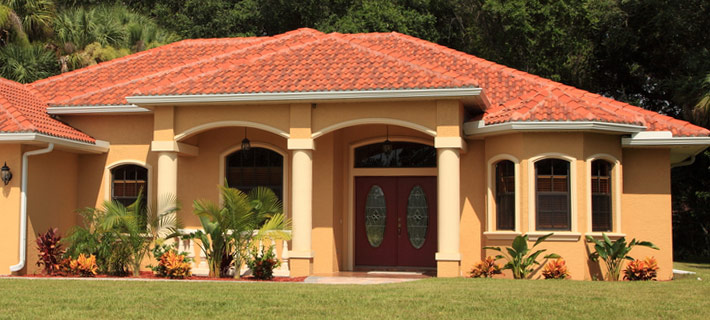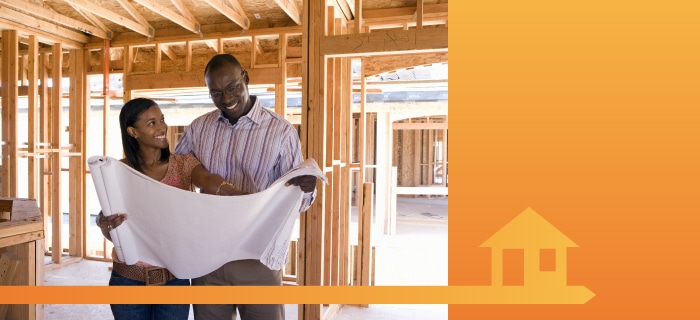Purchasing a home is one of the most significant investments you will make. Our aim is to make home ownership an easy and rewarding experience—guiding you step by step through the entire process.
Factors to consider:
- Your Budget
- Finding a Suitable Property
- Property Options: Freehold vs Leasehold or Buy vs Build
- Negotiate the Price
- Apply for your Mortgage Loan at TTMF
Decide how much you can Afford
The value of the house you can afford depends on 2 major items: what monthly installment your current income can comfortably afford & how much you have saved for a down payment and for other mortgage related costs.
Our Pre-Qualification Certificate provides an assessment of your borrowing potential and your up-front mortgage costs. The mortgage amount estimated for you must be added to your available savings to arrive at your affordable price/range. Remember to take into account other mortgage costs you will have to pay.
Finding a Suitable Property
Locating a home that suits both your family’s needs and your budget can be a challenge, but is possible.
What to Look For
Start with your preferences for location, house design and accommodations. Factors to consider include:
- Neighbourhood Characteristics: Accessibility to roads, transport, schools, shopping areas and other community services. Assess the condition of road access and standard amenities for water and electricity supply and waste disposal.
- Condition of the Structure: Check for structural, plumbing, electrical and roofing defects. Water stains, cracks, misalignment of posts or hinges, or grainy droppings under woodwork can be indicators of the need for immediate repairs.
- Property Status: Find out the status of property rates and taxes, and property insurance.
When you find a likely property, be sure to view it thoroughly, in daylight and at night.
Where to Look
Search through the local newspapers, real estate agents, your family and friends. Ask them to tell their other family and friends that you are looking for a new home. A mortgage broker may also be helpful.
If you prefer a newly built home, contact a reputable land developer for assistance in locating a suitable unit or you may search for land to purchase and then construct a design of your choice.
Considerations for Newly Contructed Homes
Purchasing a newly-built home or purchasing land and then constructing may offer an advantage in the avoidance of repairs. Keep in mind though that any newly constructed home must satisfy all local building designs, regulations and codes approved by the country’s regulatory or advisory bodies.
A valid completion certificate is required for mortgage loans on newly constructed homes up to 4 years after construction.
Freehold or Leasehold?
You need to decide which is best for you. A Freehold Property Title means that you have full control of ownership over the house and the land on which it stands. Control moves from you only when you sell the property or when you neglect to pay property taxes to local regulatory bodies, e.g. District Revenue Office, Water and Sewerage Authority.

A Leasehold Property Title means that another party (or parties), known as the Lessor, has ownership of the land on which your house stands. You are granted restricted ownership of the land for a term of years specified in the Lease. Terms may be as long as 999 years and thus property can form part of an individual’s personal estate, subject to continued observance of all stated conditions under the lease.
Townhouse and condominium homes or homes within gated communities are Leasehold Properties. Leasehold Properties include monthly fees payable to an active management company with the responsibility of maintaining all community areas.
Ask the Vendor for the property documents necessary for the processing of your mortgage application.
Build or Buy?
This should be your decision. Construction usually means a design of your choice, built on lands owned in your preferred area. You will need to contract an architect and a dependable builder and monitor work phases and costs along with him. Purchasing a home will mean you decide to accept an available style in an available location.
Negotiate the Price
When you finally decide to purchase, negotiate the price. Most vendors expect some negotiations; however, they also expect to negotiate with a serious prospective purchaser.
Once the final purchase price is agreed, a purchase agreement must be prepared stating the responsibilities of the vendor and the purchaser, and citing the circumstances in which the agreement may be cancelled and the deposit refunded. The purchase agreement becomes valid on dating and signing by the named parties and must carry a closing date. Standard time for closing a purchase agreement is 90 to 120 days from signing. It is unwise to accept less time than this.
If you will be constructing immediately, you will need to obtain all the necessary approvals for your building plans before funds can be released for any construction works. Look for a dependable Builder whose reputation can be proven by good work and satisfied customers.
Apply for your Loan at TTMF
As soon as the agreement becomes valid, arrange to make a formal mortgage loan application with us.
Remember to gather all the documents listed for the smooth processing of your mortgage loan application. Be prepared to pay the initial processing costs with the formal application. It would be to your advantage to cooperate fully and quickly with requests (ours or attorneys’) made from time to time during the progress of your transaction.
If you are constructing your home, you must provide a Contractors’ All Risks Insurance Policy for Bridge Financing arrangements to take effect.
Maintain your loan AND your home
Once you have signed the deeds and you have taken possession of your home or land, make sure that arrangements are in place to remit your mortgage instalments to us on time. You will be guided on the payment arrangement options available to you.
Schedule and budget for regular maintenance. Remember, your home will need ongoing maintenance to continue being a reflection of you.
Sources






